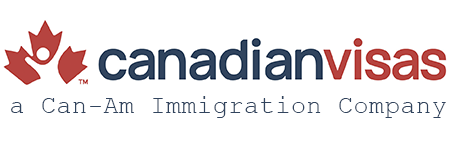FAQ
Frequently Asked Questions (FAQ)
Our Firm
1. What type of services do you offer?
We provide consultation and representation services to foreign nationals seeking to apply for a Canadian or US immigration visa. We will:
- Assess your immigration eligibility for free
- Facilitate your application process
- Address your concerns and provide solutions
- Provide you with resources and tools
- Assist you with any immigration problems
- Assist in your settlement process after arriving in Canada
2. Where is your office located?
Our head office is located in Toronto, Ontario Canada, however due to the nature of this business we operate virtual offices allowing us to provide our services in almost every country.
3. Do you have an office in my country?
We currently have representatives authorized by our head office to represent our company in United States, United Kingdom, Scotland, Israel, Taiwan, Hong Kong, Philippines, Singapore and Malaysia.
If you are located in a country that is not listed above, call our offices or use the contact page form to send us a message. We will be glad to assist you.
4. Is your company licensed to provide immigration services?
In Canada, only authorized representatives are licensed to provide immigration services for a fee. The regulatory body which oversees and regulates Canadian immigration consultants does not license companies, rather they license the individual representing the client. Can-Am Immigration operates under the direction of Nir Rozenberg, license #R418015, a Full Member in Good Standing of the Immigration Consultants of Canada Regulatory Council (ICCRC).
Hiring a Representative
1. Why retain the services of a representative?
The process of immigration to Canada is much more complicated than you may believe; much like tax law, immigration law is fraught with strict rules and regulations which may be difficult to understand and decipher. Putting together your application may take months of hard work and errors on your application could result in delays or even refusal of your application, making all of your hard work a wasted effort. Trying to figure out and compile the extensive amount of documentation and information required of you can be a daunting task which may leave you both confused and frustrated. Additionally, new rules and regulations are constantly being presented and it can be difficult to keep up with the changes. Some cases which may seem simple could turn out to be extremely complex and the slightest error on your application are not so easily fixed. You may believe that the Immigration Department can assist you in correcting your application and/or answering any of your immigration questions. In reality, Immigration Department officers often provide information which may be misleading or incorrect. Canada immigration officers often view themselves as “gatekeepers” and may refuse admission to those who do not meet the strict requirements. Our knowledgeable consultants at Can-Am Immigration will take all of the confusion, frustration and unnecessary extra work off your hands. Contrary to popular belief, immigration lawyers and consultants do not simply fill out forms for you. We continue to stay on top of any and all changes to the immigration and visa programs so that you don’t have to. As educated and trained lawyers and consultants with years of experience, we are confident that we can answer even your most complex questions. Furthermore, we ask the right questions to assess your situation and provide you with the best possible solution. We are committed to providing the highest in quality service to our clients and we pride ourselves in having a wealth of knowledge and experience to handle even the most difficult of immigration cases. At Can-Am Immigration, your goal is our goal. You can rest easy knowing that you have a strong group of individuals working on your case. Call us today to talk to a representative or continue reading for more information about the many immigration and visa services we offer.
2. Is there a difference between regulated and non-regulated immigration consultants?
Absolutely! Regulated Canadian Immigration Consultants (RCICs) are required to obide by a strict Code of Conduct. There are numerous benefits associated with utilizing the services of a RCIC and serious risks associated with utilizing the services of those unauthorized providers.
Regulated Consultants vs. Unauthorized Providers of Immigration Services:
|
Attribute
|
Regulated Canadian Immigration Consultant
|
Unauthorized Providers
|
|
Accountable to ICCRC; complaints are taken seriously
|
Yes
|
No – accountable to no one
|
|
Monitored by ICCRC; non-compliance is taken seriously
|
Yes
|
No – may operate unknown to authorities
|
|
Supported by ICCRC to enhance quality of services
|
Yes
|
No – not supported by anyone
|
|
Knowledgeable and informed on immigration law and Canadian immigration system
|
Yes
|
No – no education prerequisite on immigration issues
|
|
Proficient in English and/or French
|
Yes
|
No – may be unable to communicate properly in English or French
|
|
Required to abide by stringent ethical and professional rules that are designed to protect consumers
|
Yes
|
No – not subject to any ethical requirements
|
|
Possess valid Errors and Omissions Insurance for enhanced consumer protection
|
Yes
|
No – may not have any Errors and Omissions Insurance
|
|
Work with agents known to ICCRC
|
Yes
|
No – no information on their associates
|
|
Required to provide evidence of good character prior to becoming Regulated
|
Yes
|
No – may have committed fraudulent or illegal activities in the past
|
3. Who can represent me on my immigration case?
There are two types of immigration representatives; Paid and Unpaid. Paid representatives may charge a fee or receive any other type of consideration, to represent or advise you in connection with a Canadian immigration proceeding or application:
- Immigration consultants who are members in good standing of the Immigration Consultants of Canada Regulatory Council (ICCRC-CRCIC),
- Lawyers and paralegals who are members in good standing of a Canadian provincial or territorial law society, and
- Notaries who are members in good standing of the Chambre des notaires du Quebec
The government of Canada will not deal with non-authorized immigration representatives who charge for their services.
Unpaid immigration third parties, such as family members, friends, and non-governmental or religious organizations are allowed to act on your behalf.
4. I am getting immigration offers of ‘Guaranteed Jobs’ or ‘Guaranteed Visa’. Is this offer real?
No! DON’T BE A VICTIM OF A SCAM. If the offer seems to good to be true – it probably is.
Here’s what you need to know:
- Only authorized officers at Canadian embassies, high commissions and consulates can decide whether or not to issue a visa.
- Don’t be tempted into using false documents as this will result in the refusal of your application.
- Beware of internet scams and false websites. The official website of Citizenship and Immigration Canada (CIC) is www.cic.gc.ca.
- Processing fees are the same at all Canadian visa offices around the world. Fees in local currency are based on official exchange rates and correspond with the amount in Canadian dollars.
- Canadian visa offices will never ask you to deposit money into an individual’s personal bank accounts or to transfer money through a specific private money transfer company.
- If you have questions, contact our offices or the visa office responsible for your area.
Temporary Resident Visas
1. What is the difference between a single-entry visa and a multiple-entry visa?
A single-entry visa allows you to enter Canada once. When you arrive at the point of entry in Canada, an officer of the Canada Border Services Agency will make sure you meet the requirements to enter Canada. If you leave Canada during your authorized stay, you must get a new visitor visa to re-enter Canada.
A multiple-entry visa allows you to enter Canada several times during the period while your visa is valid. A multiple-entry visa is valid for a maximum of 10 years or one month prior to the expiry date on the passport/re-entry visa, whichever is earlier.
If a multiple-entry visa is approved, it will allow you to enter and leave Canada repeatedly during the validity period of the visa. You must arrive in Canada on or before the expiry date on your visa. You cannot get a multiple-entry visa for a period that ends after the expiry date of your passport.
2. How do I get help if my application has been refused?
There is no formal appeal process should your application be refused. You may apply again, however your application must contain new information. If your situation has not changed, the new application will probably be rejected again.
We suggest to consult with an authorized representative regarding your chances of having a second application approved. Contact our offices to speak with an authorized representative who can assess your situation.
3. Do I need a temporary resident visa to visit Canada?
It depends on which country you are a citizen of. Click here for a list of countries that require a temporary resident visa to enter Canada.
4. What is a business visitor?
A business visitor is someone who comes to Canada o engage in international business activities without directly entering the Canadian labour market. For example: someone who comes to Canada to meet with representatives of companies doing business with their country would be considered a business visitor. To learn more about Business Visitors, click here.
Working in Canada Temporarily
1. How can I find a job in Canada?
We recommend that you come to Canada on an initial exploratory visit. If you have already been to Canada or coming to Canada on a visit is not an option for you – you may wish to browse through the following job-search websites:
- HRSDC Job Bank – www.jobbank.gc.ca
- Monster.ca – www.monster.ca
- Workopolis.com – www.workopolis.com
2. How can I apply for a temporary work permit?
Foreign nationals who wish to apply and obtain a temporary work permit for Canada must first secure a job offer from a Canadian employer. Once a job offer has been secured, the Canadian employer must apply to Human Resources and Skills Development Canada for approval. Upon approval the foreign national may submit his/her application for a work permit at the local visa office responsible for their country of citizenship.
Click here for more information on applying for a temporary work permit.
3. Will I need a medical exam?
You may need to undergo a medical examination if you wish to work in facilities where it is important to protect public health such as; health services, childcare, primary or secondary education; or you are coming to work in an agricultural occupation, or you are seeking to enter Canada to work for a period greater than six (6) months, and you have lived in a designated country or territory for six (6) consecutive months during the one-year period immediately preceding the date of your seeking entry.
If a medical examination is required, you will be informed by an immigration officer who will send you instructions on how to proceed.
Student Permits
1. Do I need a study permit to study in Canada?
Most students will require a study permit to study in Canada, however there are some exceptions.
Students who are applying to study in Canada in a program that will last more than six (6) months require a study permit. Students who are applying to study less than six (6) months typically do not require a study permit, however they may still require a temporary resident visa (TRV) to enter Canada.
2. How do I find out about schools and educational programs in Canada?
Our licensed immigration consultants are very familiar with the schools and programs available in Canada. We highly recommend that you consult with our offices to determine which program is best suited for you.
3. How much does it cost to study in Canada?
The cost for studies in Canada may vary drastically between the different private and public schools and programs. On average a student will need anywhere between CDN $12,000 and $20,000 per year, including basic living expenses.
4. Am I allowed to work while I study?
Yes. International students who are studying in Canada may apply for a work permit to work. However, during your studies your work permit will allow you to work only on school property and at a maximum of 20 hours per week. During school breaks such as recognized holidays you may work up to 40 hours per week.
5. Am I allowed to work while I study?
Yes. Students are permitted to work on campus at the institution they are attending without a work permit. You may qualify for this if you are a full-time student at a public post-secondary school, university, or college or at a private post-secondary school, university, or college.
6. Can I work off-campus?
In order to work off-campus you must be a full-time student enrolled at a participating publicly funded post-secondary institution or in an approved program at an eligible privately funded institution. Students may only apply for an off-campus work permit if they have been studying in Canada for a period of at least six months in the past twelve. Off Campus work permits authorize students to work for a maximum of 20 hours per week during regular school season, and full time during holidays and breaks from school.
7. Can I stay in Canada after completing my study program?
To be authorized to stay in Canada upon the completion of your study program you must maintain proper immigration status. Proper immigration status is; visitor, student, worker or immigrant.
8. What is the Post-Grad Work Permit Program?
This is a special work permit program that allows students who have graduated from a participating Canadian post-secondary institution to gain valuable Canadian work experience.
To apply for a post-grad work permit you must have graduated from;
- a public post-secondary institution, such as a college, trade/technical school, university, or CEGEP (in Quebec), or
- a private post-secondary institution that receives at least 50% of its financing from government grants, (currently only college-level institutions can qualify), or
- a Canadian private institution authorized by provincial statute to confer degrees (not likely).
Post-graduation work permits are issued for no longer than the length of the study program and are not issued for longer than three (3) years. To apply for a Post-Graduation Work Permit, you must have successfully completed a program with a minimum length of eight (8) months.
CALL US TODAY 1.888.808.7338
Our certified immigration consultants can assist you with all of your Canada immigration or visa needs. Call us today for answers to any of your Canada immigration questions or take our free online assessment to see if you qualify.
YOUR OPTIONS
GET STARTED
LATEST NEWS

Nearly 1000 Fields Now Eligible for the Post-Graduation Work Permit!
As of June 25, 2025, Immigration, Refugees and Citizenship Canada (IRCC) announced significant updates to the Post-Graduation Work Permit (PGWP) program, particularly for international students pursuing non-degree programs. These changes are designed to align the PGWP...

How the Liberals Could Change Canada’s Immigration Policy
Canada's recent election has ushered in a new Liberal government led by Mark Carney, signaling potentially significant shifts in immigration policy. For those considering immigrating to Canada after the election, understanding the nuances of these changes goes beyond...
Our Local Immigration Services
